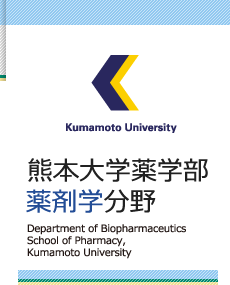Cancer Researchに論文が受理されました。(AGPによる腫瘍関連マクロファージを介した腫瘍免疫抑制作用の解明:細胞病理学分野との共同研究)
Cancer Researchに論文が受理されました。(AGPによる腫瘍関連マクロファージを介した腫瘍免疫抑制作用の解明:細胞病理学分野との共同研究)
α1-acid glycoprotein enhances the immunosuppressive and protumor functions of tumor-associated macrophages
Kotaro Matsusaka, Yukio Fujiwara, Cheng Pan, Shigeyuki Esumi, Yoichi Saito, Jing Bi, Yuka Nakamura, Ayumi Mukunoki, Toru Takeo, Naomi Nakagata, Daiki Yoshii, Ryo Fukuda, Taisei Nagasaki, Ryusei Tanaka, Hisakazu Komori, Hitoshi Maeda, Hiroshi Watanabe, Koji Tamada, Yoshihiro Komohara, Toru Maruyama
Abstract
Blood levels of acute-phase protein α1-acid glycoprotein (AGP, orosmucoid) increase in patients with cancer. Although AGP is produced from hepatocytes following stimulation by immune cell-derived cytokines under conditions of inflammation and tumorigenesis, the functions of AGP in tumorigenesis and tumor progression remain unknown.
In the present study, we revealed that AGP contributes directly to tumor development by induction of programmed death ligand 1 (PD-L1) expression and IL-6 production in macrophages. Stimulation of AGP induced PD-L1 expression in both human monocyte- derived macrophages through STAT1 activation, whereas AGP had no direct effect on PD-L1 expression in tumor cells. AGP also induced IL-6 production from macrophages, which stimulated proliferation in tumor cells by IL-6R-mediated activation of STAT3. Furthermore, administration of AGP to AGP KO mice phenocopied effects of tumor- associated macrophages on tumor progression. AGP decreased IFN-γ secretion from T- cells and enhanced STAT3 activation in subcutaneous tumor tissues. In addition, AGP regulated PD-L1 expression and IL-6 production in macrophages by binding with CD14, a co-receptor for TLR4, and inducing TLR4 signaling.
These results provide the first evidence that AGP is directly involved in tumorigenesis by interacting with tumor-associated macrophages and that AGP might be a target molecule for anti-cancer therapy.
Statement of significance
AGP-mediated suppression of anti-tumor immunity contributes to tumor progression by inducing PD-L1 expression and IL-6 production in tumor-associated macrophages.
年月別
- 2021年8月
- 2021年7月
- 2021年6月
- 2021年5月
- 2021年4月
- 2021年3月
- 2020年12月
- 2020年11月
- 2020年10月
- 2020年8月
- 2020年7月
- 2020年5月
- 2020年4月
- 2020年3月
- 2020年1月
- 2019年11月
- 2019年10月
- 2019年9月
- 2019年8月
- 2019年7月
- 2019年5月
- 2019年1月
- 2018年11月
- 2018年9月
- 2018年6月
- 2018年5月
- 2018年4月
- 2018年3月
- 2018年2月
- 2017年12月
- 2017年11月
- 2017年10月
- 2017年8月
- 2017年7月
- 2017年6月
- 2017年5月
- 2017年4月
- 2017年3月
- 2017年2月
- 2016年12月
- 2016年11月
- 2016年9月
- 2016年8月
- 2016年7月
- 2016年6月
- 2016年5月
- 2016年4月
- 2016年3月
- 2015年12月
- 2015年10月
- 2015年9月
- 2015年8月
- 2015年7月
- 2015年6月
- 2015年5月
- 2015年2月
- 2014年12月
- 2014年11月
- 2014年10月
- 2014年9月
- 2014年8月
- 2014年7月
- 2014年6月
- 2014年5月
- 2014年4月
- 2014年3月
- 2014年2月
- 2014年1月
- 2013年12月
- 2013年11月
- 2013年10月
- 2013年8月
- 2013年7月
- 2013年6月
- 2013年5月
- 2013年4月
- 2013年2月
- 2013年1月
- 2012年11月
- 2012年10月
- 2012年7月
- 2012年5月
- 2012年4月
















